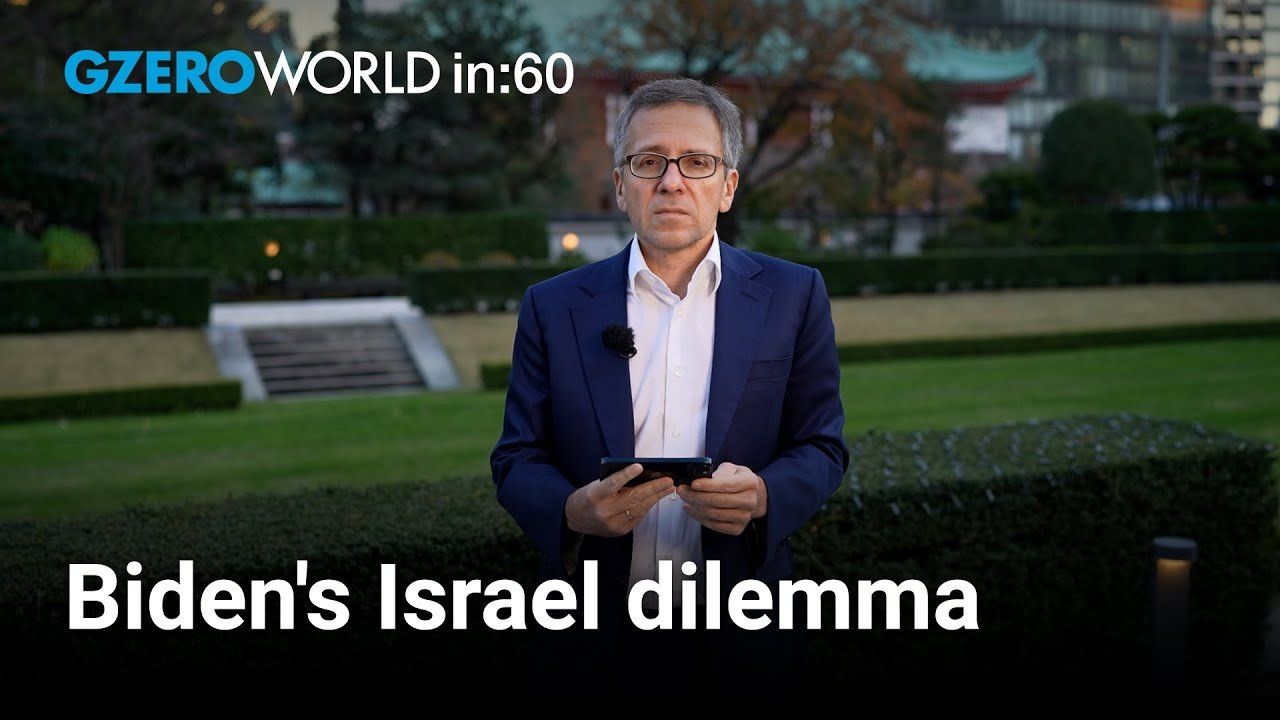Ian Bremmer shares his insights on global politics this week on World In :60.
Why is Biden's handling of the Israel-Hamas war hurting his reelection bid?
Well, look, there is virtually no position he can take on Israel and not alienate a significant piece of his own support base in the United States. He is presently stapled to the Netanyahu government and policy, which is really antagonizing more than 50% of committed Democrats, people who say they're going to vote for Biden. On the other hand, strongly pro-Israel Biden, Israel being America's most important ally in the Middle East, is seen as soft on that policy vis-a-vis the Republicans. The only way this is a winning issue for Biden is if it's no longer anywhere close to the headlines when the election hits.
Does France have a terrorism problem?
Well, sure they do, and they also have a radical Islamic extremist problem, and we've seen most recently that someone, a French national but is sworn allegiance with ISIS, knifed and killed one tourist next to the Eiffel Tower, injured a couple others. What they don't have is a major gun violence problem. If this guy had an assault weapon, probably would've killed a couple dozen.
Are Venezuela and Guyana on the brink of war?
I think the answer to that is no, but certainly we're going to hear a lot about major tensions. And the reason for that is because President Nicolás Maduro, who is very far from being a Democrat, his economy has been driven by him and his predecessor, Chávez, into a ditch. He has virtually no support domestically, and the opposition really, really wants to take power. And there has been a lot of pressure, including from the United States, carrots and sticks economically, to move forward on an election. Problem being that Maduro doesn't want to have a free and fair election, and he needs to find a way to rally support. And one thing he can do is Guyana, piece of Guyana, which the Venezuelans claim as their own, is one of the very few things that the Venezuelan people actually agree with Maduro on. So he decided to host a referendum, which the people strongly support, and they say, "We want to take that piece of territory." Now, supporting it and actually taking it are two very different things. First, because the Americans would strongly oppose. The Brazilians would strongly oppose, and you'd see a lot of sticks as a consequence of that against an economy that can't really afford them. But also, China is a partial owner of the massive oil find that is just offshore this territory in Guyana, and they are the only friend that spends real money with the Venezuelans right now. So I think this is a lot of bluff and a lot of bluster, but nonetheless, it's going to drive some headlines as maybe, maybe people worry about violence and another war in another part of the world.
- Israel-Hamas war: Biden's second foreign policy crisis ›
- Venezuela and Guyana border dispute ›
- Maduro’s weapon of mass distraction ›
- Venezuelan vote puts the neighbors on edge ›
- The Democrats post some wins – but continue to worry about 2024 ›
- Biden's 2024 prospects slip even as Democrats make gains ›
- Biden's 2024 election vulnerabilities and strengths ›
- Biden and Israeli war cabinet go public over disagreement in Gaza war - GZERO Media ›
- AI explosion, elections, and wars: What to expect in 2024 - GZERO Media ›
- US inching away from Israel on Gaza war - GZERO Media ›
- How the US election will change the world - GZERO Media ›
More For You
Most Popular
In this Quick Take, Ian Bremmer reacts to President Trump’s State of the Union address, calling it “a rehashing of the greatest hits” with little new policy direction.
Small business hiring surged 7% above the 2024 average in December, led by a surprise rally in retail. But with uncertainty still historically high and mounting concerns over tariffs, can this momentum survive 2026? Explore the data behind the resilience of the US small business sector. Get the latest economic insights from Bank of America Institute.
